Return to Seoul
Stranger in a strange land.
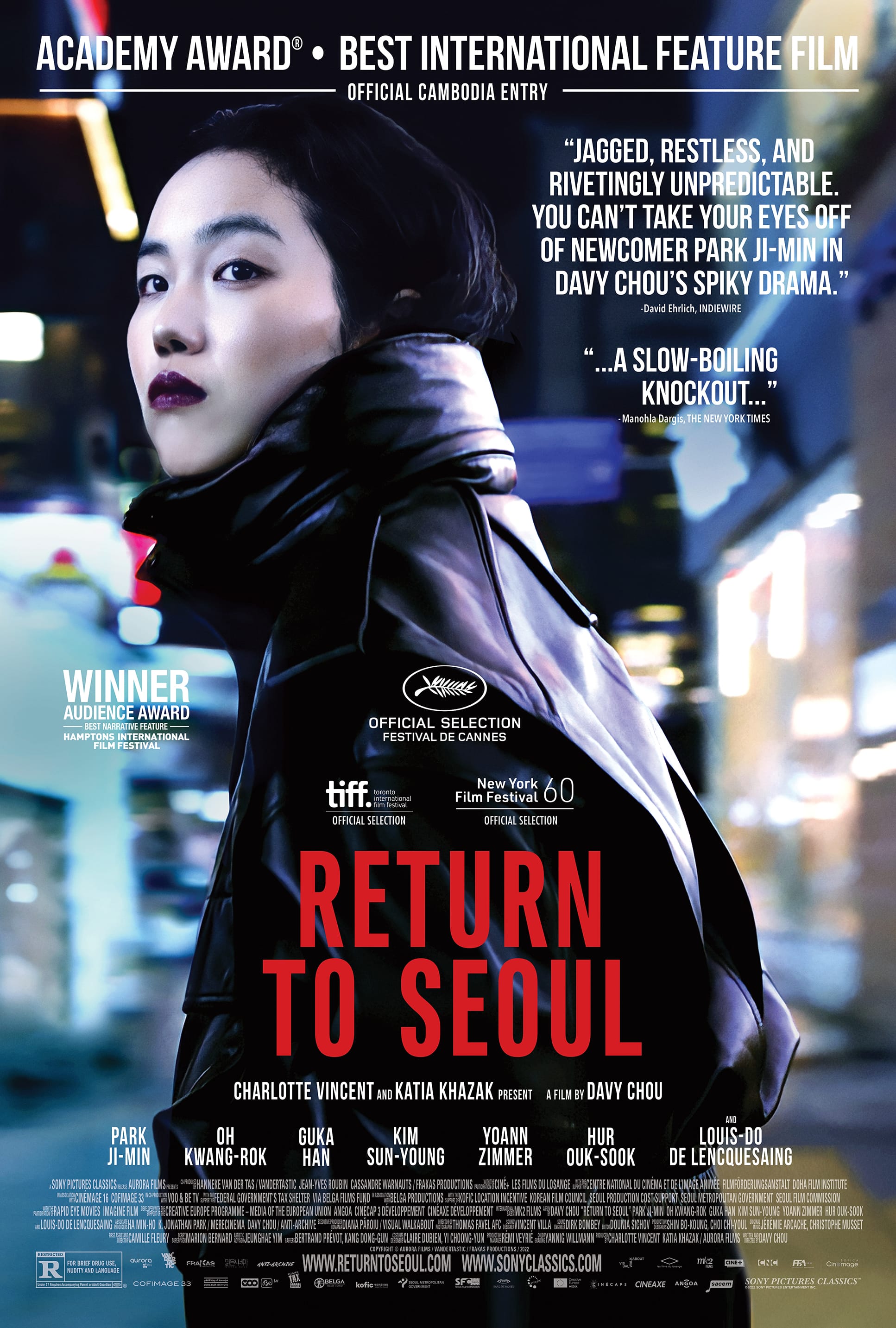
A 25 year old woman—a transracial adoptee, Korean-born and French-raised—aimlessly returns to South Korea for the first time in her life. On a whim, she decides to look for her biological parents, sparking an eight year long journey of change and growth.
Originally titled All the People I'll Never Be, Return to Seoul premiered at the Un Certain Regard section of the Cannes Film Festival in 2022, a showcase for 20 films of unusual style and non-traditional stories in a separate competition from the Palme d'Or. It was also selected as the Cambodian entry for Best International Film at the 95th Academy Awards. While it was critically acclaimed, it didn’t win either prize.
Return to Seoul is the story of Frédérique "Freddie" Benoît, played by Ji-Min Park in is her first feature film role. Freddie is a transracial Korean adoptee who was raised in France, and is now in Korea for the first time, but the specific reasons for this trip are unclear. She doesn’t speak the language. She knows no one. She has no specific plans. Why is she here? Curiosity? To find herself? To connect with the country and culture of her birth? Or to find her biological parents and maybe get some answers as to why she was given up for adoption in the first place?
Some of those reasons? Most? All four? None?
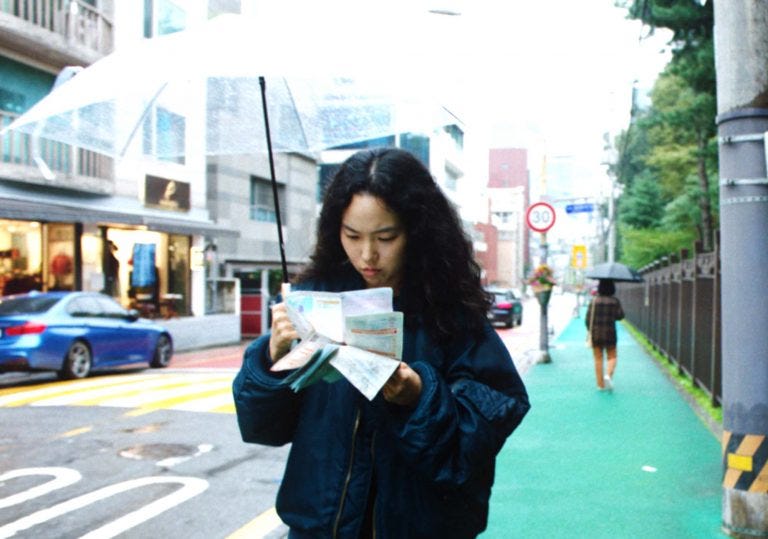
A casual mention, a bit of curiosity, and a sudden whim leads her to the adoption agency, and from there, to her father and his family. Her father is still sad over giving her up. He drinks and sends her sorrowful emails filled with regrets, pleading with her to stay in Korea. Their conversations are stilted, slow and awkward, the gulf between them impossibly wide, not just due to the language barrier, or the years and miles that lay between them, but the confusing roil of emotions within them, especially Freddie. Overnight, she shares a sleeping space with her grandmother. The old woman cries over her in the dark, praying for forgiveness. It’s all too much for Freddie, who can barely acknowledge her own hurt, let alone deal with the pain of others, so she runs away, angry, lashing out, and self-destructive.
This is just the first step in a longer journey of anger, resentment, and recriminations, of faltering growth and missteps, as Freddie attempts to reconcile her issues, not just with herself, or with her father, but her birth mother too, after an initial emotionally-wrought meeting with her, and always with the reminder that each moment has only been a step along the way, that the journey continues. It’s a sad and very tense story, as Freddie is like brittle ice covering a suddenly active volcano throughout.
During their first encounters, Freddie angrily declares to her newly-met Step-Mom, who sort of speaks French, to tell her father, “He needs to understand that I’m French now. My friends and family are there.” But as much as that is true, it also very much is not true, and that’s why she is in Korea. Freddie is stuck in the same identity-limbo as many others are who were raised in a predominately white culture and white area, by predominantly white people, all while they themselves are not. It’s the reality of being a part of two worlds, and yet not a part of either.
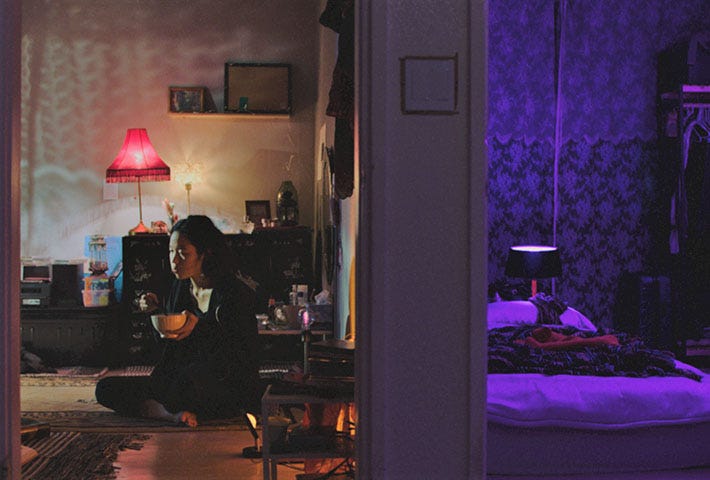
As someone who was born mostly white, and raised in the culture of White America, in the middlest of Middle America, and the smallest and whitest of White small town America, all while also being just a little bit visibly Asian, which is more than enough of a racial makeup that to White America that means I’m Asian-American—because only white people get to be just American in America, everyone else gets a qualifier—Freddie’s situation is one that I recognize, and at least somewhat, can relate to. As I often say, I’m not white, but I sure as shit ain’t Asian either.
That’s kind of what Freddy struggles with here.
Neither one, nor the other, but also both.
At one point, Freddie is out in Seoul with some new friends, and they explain to her that, in Korea, it’s considered rude to pour a drink for yourself when you’re out, that her companions must pour her drink, and she must pour theirs, or it is considered to be an insult, signifying that they aren’t caring for each other. And upon hearing this, Freddie very deliberately pours her own drink. This is Freddie telling them—and also telling us, the audience, as she pushes all of us away—that experience has taught her, burned into her, that she is the only one in her group, so she is the only one who gets to take care of her, that she doesn’t need anyone… or their kindness.
Even though that’s not true at all
Because Freddie is definitely looking for a connection, be it with her past, her people, her family, or herself, her true self.
She just… doesn’t know who that is.
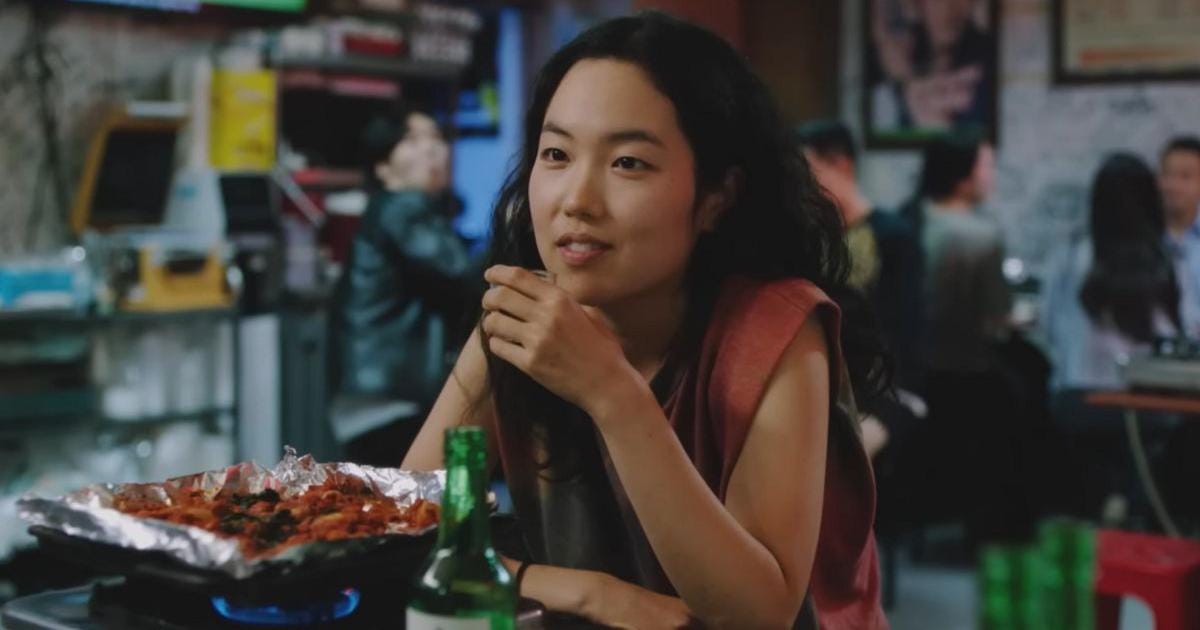
Freddie is complicated. She’s angry, lonely, resentful, a little bit selfish, and always ready to lash out. Often times in the film, Freddie is unfriendly and rude, even cruel, as she refuses to fit in or to observe cultural norms. She seems to have no interest in coddling others, or their feeling, not now, maybe not ever again. This isn’t only due to the feelings of isolation and alienation that come from her always being an outsider either; it’s also clear that she’s been hurt before, maybe even right before taking this Korea trip too. We don’t know. There’s a brief reference to her being in Japan recently, how something happened there, and how she can never go back again, that feels like maybe she’s wallowing in the wake of a relationship that soured, but it’s unclear. Like so many other things when it comes to Freddy, her wants, her hurts, her hopes, any questions about her past are all clutched very tightly to herself. She has a wall, and there is no way she’s letting anyone else in, not even the audience.
The fact that this is Ji-Min Park’s first feature film role is impressive, as Freddie is a difficult character. Her pain is so clear, despite her efforts to hide it, and Park shows so much in Freddie’s carefully guarded facial expressions, in her defensive postures, her chaotic outbursts, and her smirking acerbic tongue. And as the years pass, and Freddie subtly matures, we still see those flashes of who she once was.
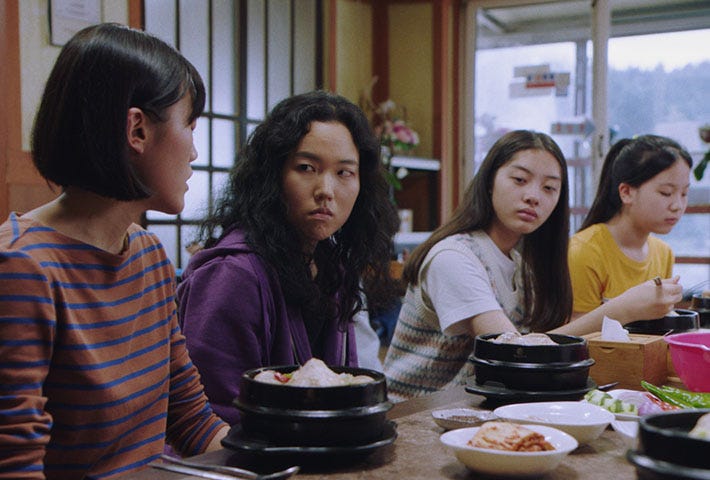
It’s really phenomenal work.
Return to Seoul is a very quiet and restrained, very somber, and a very sadly romantic film of overcast gray skies and wet neon-lit night time streets. It offers no resolutions either. This is a film about a continual journey, one that more often than not is walked alone. It’s a story about being a part of two intertwined worlds, while also never being allowed to fully be a part of either, and the conflict that comes with trying to live with that reality.
In the end, Return to Seoul is an uneasy, but touching exploration of an imperfect person, a butterfly struggling to emerge, and their faltering and meandering journey of self-discovery.
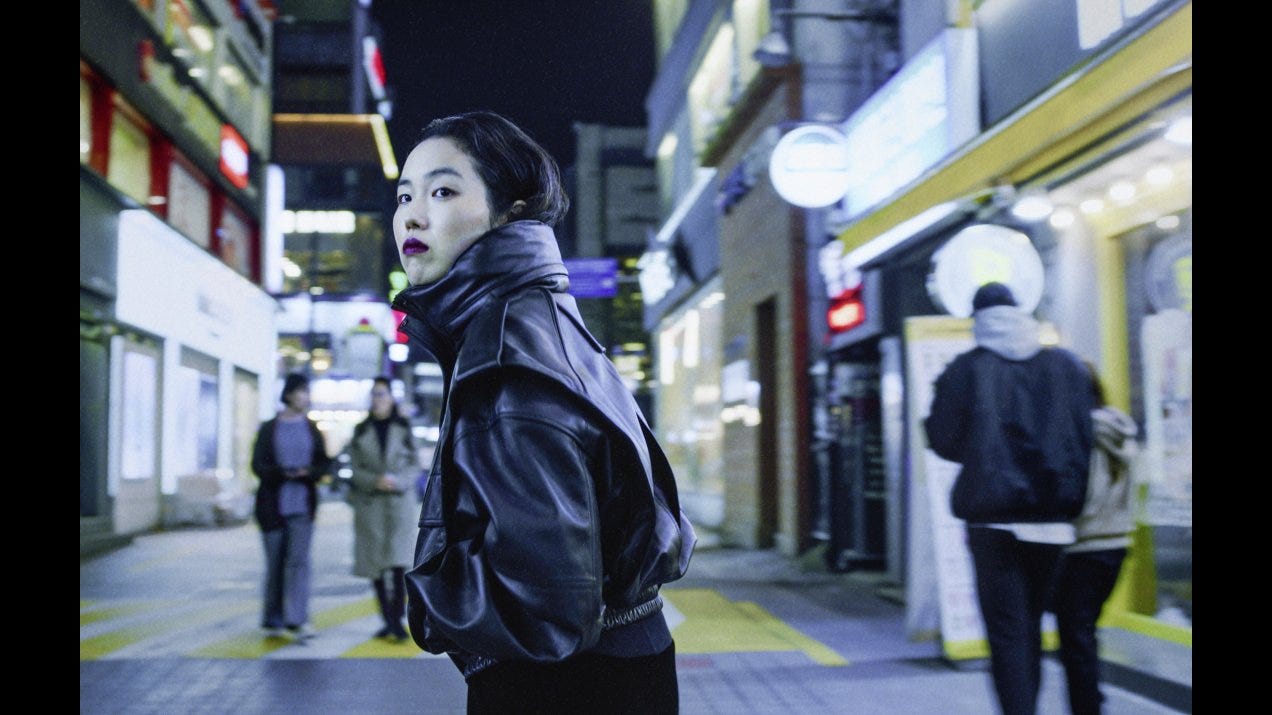
Big thumbs up.
